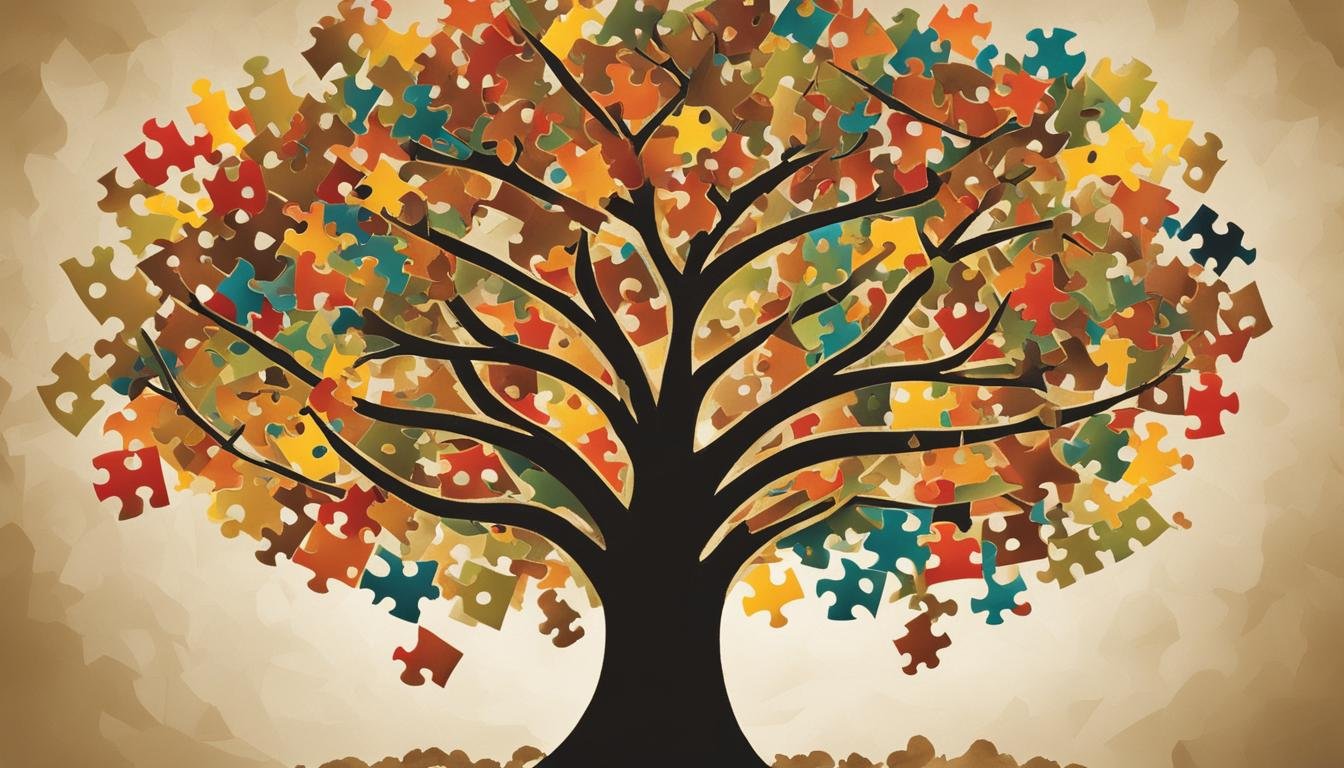
Are you interested in understanding the complexities of decision making? Do you want to learn how psychology and behavioral economics inform our choices? Look no further than “Thinking, Fast and Slow by Daniel Kahneman.” As a Nobel Prize winner and best-selling author, Kahneman’s insights into cognitive biases, critical thinking, and decision making offer a fascinating exploration of the human mind.
In this article, we will dive into the key concepts of decision making, behavioral economics, and psychology as they relate to Kahneman’s work. Explore the power of critical thinking, learn about the cognitive biases that shape our choices, and gain insights into how psychology impacts our decision making. Discover the impact of “Thinking, Fast and Slow” and the legacy of Daniel Kahneman’s groundbreaking research.
Key Takeaways
- Gain insights into the intricacies of decision making, behavioral economics, psychology, and cognitive biases.
- Explore the concepts of fast and slow thinking, cognitive biases, and critical thinking skills.
- Discover Nobel Prize-winning author Daniel Kahneman’s best-selling book, “Thinking, Fast and Slow.”
- Learn how to recognize and overcome cognitive biases to make better decisions.
- Develop critical thinking skills to analyze information, consider different perspectives, and make well-informed judgments.
Understanding Decision Making
At the heart of all our actions and thoughts, decision making is a fundamental process that shapes our daily lives. From the mundane choices of what to eat or wear, to the more significant decisions like buying a house or changing jobs, our lives are constantly shaped by the choices we make. Therefore, it is imperative to understand the intricacies of decision making.
Decision making is a complex process that involves multiple factors, including psychological, emotional, and social influences. Behavioral economics, which combines insights from psychology and economics, has revolutionized our understanding of decision making and offers valuable insights into the factors that affect our choices. Developing critical thinking skills is also crucial for making sound and informed decisions. By questioning assumptions, analyzing information critically and objectively, and considering multiple perspectives, we can make better decisions.
“Decision making is a complex process that involves multiple factors, including psychological, emotional, and social influences.”
Moreover, critical thinking skills can help us recognize and mitigate the cognitive biases and heuristics that can lead us astray. By understanding the ways in which our minds can be influenced, we can make more rational and informed decisions. Through a greater awareness of the psychological factors that impact decision making, we can better understand our own choices and those of others.
In the next sections, we will delve deeper into the fundamentals of decision making, behavioral economics, critical thinking, and psychology, offering insights and strategies to improve our decision-making skills and enhance our perspectives on life.
Uncovering Behavioral Economics
Behavioral economics is a fascinating field that combines insights from psychology and economics to understand how people make economic decisions. At its core, behavioral economics recognizes that humans are not always rational decision-makers. In fact, we are often influenced by our emotions, social norms, and cognitive biases.
According to behavioral economics, our choices are not always based on the best available information. Instead, we frequently make decisions based on heuristics, or mental shortcuts, that can lead to suboptimal outcomes.
One classic example of a heuristic is the anchoring effect. This occurs when people rely too heavily on the first piece of information they receive when making a decision, even if that information is irrelevant or incorrect.
Behavioral economics has profound implications for decision-making processes in areas such as finance, healthcare, and policy-making. By understanding the ways in which psychological factors influence our decisions, we can help people make better-informed choices and design more effective public policies.
“In behavioral economics, we learn that small tweaks to the way choices are presented can have a big impact on the decisions people make.”
One way behavioral economics is applied in practice is through nudges, or small interventions designed to steer people towards better choices. For example, a nudge might involve changing the way a default option is presented, making it more likely that people will choose a desirable outcome.
Overall, behavioral economics provides a powerful framework for understanding the ways in which people make decisions. By recognizing the limitations of our thinking processes and the various factors that influence our choices, we can make more informed and rational decisions in all aspects of our lives.
Exploring Psychology and Decision Making
Psychology plays a significant role in decision-making processes. Our thoughts, emotions, and past experiences greatly influence the choices we make. Understanding the cognitive biases and heuristics that shape our thinking can help us make more informed decisions.
Cognitive biases are inherent flaws in our thinking processes that can lead to irrational and biased decision making. They result from mental shortcuts we take to simplify complex situations, which can often backfire. These biases can cloud our judgment and lead us astray, so it’s essential to recognize them in our decision-making processes.
Heuristics are mental shortcuts we use to make quick judgments and decisions. These can be helpful in certain situations, but they can also lead to errors in judgment. By becoming aware of our heuristics and their limitations, we can make more rational decisions.
Moreover, social influences, such as peer pressure or conformity bias, can also impact our decision-making. We may be affected by groupthink or go along with societal norms, even if they go against our values. By recognizing these influences, we can evaluate our decisions more critically.
“The more specific the prediction, the less likely it is to come true, but the more confident we can be that it is true if it does come true.”
One particular cognitive bias that can affect our decisions is the overconfidence bias. This bias occurs when we overestimate our abilities or the accuracy of our beliefs. We may be certain that a particular decision is the correct one, despite evidence to the contrary. By recognizing this bias, we can approach decisions with more humility and objectivity.
By exploring the psychological factors that impact decision making, we can gain a deeper understanding of our thought processes and biases. This awareness can help us make more informed decisions and improve our critical thinking skills.
Recognizing Cognitive Biases
When making decisions, we tend to believe that we are being rational and objective. However, our thinking processes are not always as clear-cut as we might assume. Cognitive biases are inherent flaws in our thinking that can lead us astray. By recognizing these biases, we can make more informed decisions.
Cognitive biases can manifest in many ways, from the halo effect, where we judge someone based on one positive characteristic, to the framing effect, where the way information is presented influences our decisions. The confirmation bias is another common cognitive bias where we seek out information that confirms our existing beliefs, while ignoring information that contradicts them.
It’s important to recognize these biases because they can significantly impact our decision making, and sometimes, lead to irrational choices. For example, we may overvalue immediate gains and undervalue long-term benefits.
Fortunately, behavioral economics has given us many tools for recognizing cognitive biases. By understanding the principles of behavioral economics, we can learn to mitigate the effects of cognitive biases and make more informed decisions.
The Dunning-Kruger Effect
The Dunning-Kruger effect is a cognitive bias where people overestimate their abilities in areas where they have little experience or knowledge. This bias can lead to overconfidence and poor decision making.
For example, a person who has never invested in the stock market may believe they have a good understanding of how it works and make decisions accordingly. However, this overconfidence can lead to poor investment choices and financial losses.
Recognizing the Dunning-Kruger effect can help us make more informed decisions by acknowledging our limitations in areas where we lack expertise.
The Availability Heuristic
The availability heuristic is a cognitive bias where people rely too heavily on easily accessible information when making decisions. This can lead to poor decisions because the information that is most readily available is not necessarily the most accurate or relevant.
For example, a person may be more likely to make an investment decision based on the recent performance of a particular stock, rather than considering the long-term trends and economic indicators.
Recognizing the availability heuristic can help us make more informed decisions by seeking out a broader range of information and considering the relevance and accuracy of the available information.

“The first step is to recognize that our thinking is not always rational or objective. By acknowledging our cognitive biases, we can develop strategies to overcome them and make more informed decisions.”
Developing Critical Thinking Skills
Critical thinking is an essential skill that allows you to analyze information objectively, evaluate different perspectives, and make informed decisions. While some people may possess innate critical thinking abilities, it’s a skill that can be developed and improved over time.
One way to hone your critical thinking skills is by asking questions. When faced with a decision, take the time to ask yourself questions about the situation. What information do you have, and what information do you need to make an informed decision? What are the potential consequences of each choice? What biases or assumptions might be influencing your thinking?
Another technique for improving critical thinking is to consider multiple perspectives. Try to look at the situation from different angles and consider the viewpoints of others. This will help you gain a better understanding of the issue and make a more informed choice.
Question Assumptions
One of the most important aspects of critical thinking is questioning assumptions. Many decisions are influenced by assumptions that are based on incomplete or inaccurate information. By questioning these assumptions, you can gain a better understanding of the issue and make a more informed choice.
“The important thing is not to stop questioning. Curiosity has its own reason for existence. One cannot help but be in awe when he contemplates the mysteries of eternity, of life, of the marvelous structure of reality. It is enough if one tries merely to comprehend a little of this mystery each day.” – Albert Einstein
As Einstein suggests, curiosity is an important aspect of critical thinking. By approaching decisions with an open mind and a desire to learn more, you can gain a deeper understanding of the issue and make a more informed choice.
Avoid Common Pitfalls
There are a few common pitfalls that can impede critical thinking, such as confirmation bias and groupthink. Confirmation bias is the tendency to look for information that supports your existing beliefs and ignore information that contradicts them. Groupthink is the tendency to conform to the opinions or decisions of a group, even if they are not in your best interests.
To avoid these pitfalls, it’s important to stay aware of your own biases and to seek out diverse perspectives. Additionally, taking the time to evaluate information objectively and consider all options can help you avoid falling into the trap of groupthink.
By developing your critical thinking skills, you can become a more effective decision maker and problem solver. Whether you’re making a personal or professional choice, critical thinking can help you weigh the pros and cons, consider multiple perspectives, and make an informed decision that aligns with your goals and values.
Daniel Kahneman’s Insights
Daniel Kahneman is a renowned psychologist and economist whose research has revolutionized our understanding of decision making. He received the Nobel Prize in Economics in 2002 for his groundbreaking contributions to the field of behavioral economics.
In addition to his Nobel Prize, Kahneman has authored several best-selling books, including “Thinking, Fast and Slow,” which delves into the intricacies of our thinking processes and how they can lead to both rational and irrational decision making. His work has provided valuable insights into the complexities of human behavior and decision making.
“A reliable way to make people believe in falsehoods is frequent repetition, because familiarity is not easily distinguished from truth.” – Daniel Kahneman
One of Kahneman’s key contributions to the field of decision making is the identification and study of cognitive biases, which are inherent flaws in our thinking processes that can lead to irrational and biased decision making. By understanding these biases, we can become more aware of our own thought patterns and ultimately make more informed decisions.
Overall, Daniel Kahneman’s groundbreaking work has had a significant impact on the fields of psychology, economics, and decision making. His insights have provided valuable tools for understanding the complexities of the human mind and making more rational and informed decisions.

Applying Behavioral Economics to Everyday Life
Behavioral economics is a field that combines the insights of psychology with economics to understand how people make decisions. By understanding the principles of behavioral economics, we can improve various aspects of our lives. Here are some ways that you can apply behavioral economics to your everyday life.
Financial Decision Making
One area where the principles of behavioral economics can be applied is in financial decision making. Understanding the cognitive biases that can lead us astray when making financial decisions can help us make better choices. For example, the sunk cost fallacy is a cognitive bias that can cause us to continue investing in a project or activity even when it’s no longer profitable or enjoyable. Recognizing this bias can help us cut our losses and make more rational decisions.
Another example is anchoring, which is the tendency to rely too heavily on the first piece of information we receive when making a decision. When shopping for a product, for example, we may be influenced by the price of the first item we see and assume that other products are either good deals or overpriced based on that anchor. Being aware of this bias can help us make more informed purchasing decisions.
Healthier Habits
Behavioral economics can also be applied to promoting healthier habits. One way to do this is through the use of incentives. For example, studies have shown that people are more likely to engage in physical activity if they are given small financial incentives for doing so. This principle can be applied to other healthy habits as well, such as eating a balanced diet or getting enough sleep.
Another way to promote healthier habits is by changing the environment in which we make decisions. For example, placing healthy foods at eye level in a grocery store can encourage people to choose those options over less healthy ones. Similarly, placing a glass of water on your desk at work may remind you to drink more water throughout the day.
Overall Well-Being
Finally, the principles of behavioral economics can be applied to enhance our overall well-being. For example, studies have shown that people are more likely to be happy when they spend money on experiences rather than material possessions. Understanding this principle can help us make more fulfilling choices when it comes to how we spend our time and money.
Another example is social norms. We are often influenced by what others around us are doing, and this can impact our decisions. By understanding social norms, we can choose to surround ourselves with people who engage in behaviors that align with our values and goals.
By applying the principles of behavioral economics to our everyday lives, we can make better decisions, promote healthier habits, and enhance our overall well-being.
Overcoming Cognitive Biases
In today’s world, we are bombarded with an overwhelming amount of information, making it challenging to make well-informed decisions. To further complicate matters, our decision-making processes are often clouded by cognitive biases and heuristics that impact our judgment. Overcoming these biases is crucial to making rational decisions.
Cognitive biases are inherent flaws in our thinking processes that can lead to irrational and biased decision making. These biases are often based on our past experiences, emotions, and social influences, and can greatly impact the choices we make.
Critical thinking is an essential tool for overcoming cognitive biases. By critically evaluating information and considering multiple perspectives, we can mitigate the impact of biases on our decision-making processes.
“Critical thinking is the intellectually disciplined process of actively and skillfully conceptualizing, applying, analyzing, synthesizing, and/or evaluating information gathered from, or generated by, observation, experience, reflection, reasoning, or communication.” – The Foundation for Critical Thinking
Developing critical thinking skills involves learning to recognize when our thinking may be influenced by biases and developing strategies to mitigate their impact. By questioning assumptions, analyzing information objectively, and making reasoned judgments, we can overcome cognitive biases and make rational decisions.
Strengthening your critical thinking skills can take time and effort, but the benefits are invaluable. With practice, you can become a more reliable decision maker, equipped to navigate the complexities of life with confidence and clarity.

- Recognize your cognitive biases and work to overcome them.
- Consider multiple perspectives and objectively evaluate information before making a decision.
- Question assumptions and avoid jumping to conclusions.
- Develop a habit of evaluating evidence and analyzing arguments critically.
By incorporating these strategies into your decision-making processes, you can overcome cognitive biases and make rational and informed decisions.
The Power of Critical Thinking
Critical thinking is a fundamental skill for making sound decisions. It involves analyzing information objectively, considering multiple perspectives, and avoiding common pitfalls in reasoning. By honing your critical thinking abilities, you can become better equipped to navigate the complexities of life and make well-informed judgments.
Critical thinking is particularly vital in decision-making contexts where there may be incomplete or conflicting information. By questioning assumptions, evaluating evidence, and applying sound reasoning, you can make more accurate predictions and avoid costly mistakes.
The Benefits of Critical Thinking
Critical thinking can enhance various aspects of your life, including problem-solving, communication, and decision-making skills. When you approach problems with a critical eye, you’re more likely to identify viable solutions and anticipate potential challenges.
“Critical thinking is the intellectually disciplined process of actively and skillfully conceptualizing, applying, analyzing, synthesizing, and/or evaluating information gathered from, or generated by, observation, experience, reflection, reasoning, or communication, as a guide to belief and action.” – The Foundation for Critical Thinking
In addition to improving your analytical skills, critical thinking can also enhance your communication abilities. By learning to articulate your thoughts clearly and persuasively, you can communicate more effectively with others, whether at work, home, or in social situations.
Developing Critical Thinking Skills
Anyone can develop critical thinking skills with practice and effort. One way to strengthen your critical thinking abilities is to challenge yourself to think outside the box and consider alternative perspectives. You can also evaluate arguments and evidence by asking critical questions and looking for inconsistencies.
- Here are some strategies for developing critical thinking skills:
- Question assumptions
- Evaluate evidence objectively
- Consider multiple perspectives
- Avoid common reasoning pitfalls
- Communicate your ideas clearly and effectively
By applying these strategies to your decision-making processes, you can become a more effective and analytical thinker, ultimately leading to better decisions.
In conclusion, critical thinking plays a vital role in decision making. By learning to analyze information objectively, consider alternative perspectives, and avoid cognitive biases, you can make more informed and rational decisions in various aspects of your life. So, prioritize developing your critical thinking skills to take charge of your life and excel in any situation.
The Psychological Influences on Decision Making
Our decisions are not made in a vacuum. Our psychological makeup greatly influences the choices we make. From emotions and biases to social influences and personal beliefs, psychological factors play a critical role in our decision-making processes. To make more informed and rational decisions, it’s essential to recognize and understand the psychological influences at play.
The Role of Emotions in Decision Making
Emotions can strongly influence our decisions, even when we’re not fully aware of it. Our emotions can impact how we perceive information, what we focus on, and how we weigh the options. In some cases, emotions can help us make better decisions, such as when we’re making decisions based on our personal values or morals. However, in other cases, emotions can cloud our judgment and lead to irrational decisions.
The Impact of Social Influences on Decision Making
Our social environment can also play a significant role in our decision making. Social influence can come from various sources, such as peer pressure, cultural norms, and media messages. Our social networks can shape our beliefs and values, which, in turn, can impact our decisions. To make more informed decisions, it’s essential to be aware of the social influences at play and to consider how they may be impacting our choices.
Cognitive Biases and Decision Making
Cognitive biases are inherent flaws in our thinking processes that can impact our decision making. These biases can lead us to overlook important information, make snap judgments, or jump to conclusions without considering all the facts. By recognizing and understanding cognitive biases, we can make more rational and informed decisions. Some of the most common cognitive biases include confirmation bias, availability bias, and the halo effect.
“The idea that intuition is based on a single and powerful system is an illusion; in fact, intuition is based on several distinct mental processes that cooperate poorly” – Daniel Kahneman
Understanding the psychological influences on decision making is important for developing critical thinking skills. By recognizing the impact of emotions, social influences, and cognitive biases, we can make more informed and rational decisions. The key is to approach decision making with an open mind, question assumptions, and evaluate information objectively.

Conclusion
“Thinking, Fast and Slow by Daniel Kahneman” is a must-read book for anyone interested in decision-making, behavioral economics, psychology, and critical thinking. By exploring the intricacies of our thinking processes, cognitive biases, and the power of critical thinking, we can make more informed and rational decisions in our personal and professional lives.
Enhance Your Perspective
Daniel Kahneman’s best-selling book offers captivating insights into the complexities of the human mind. By understanding the various factors that influence our decision-making processes, we can develop critical thinking skills that can enhance our perspective and lead to more informed choices.
Cognitive Biases
Cognitive biases can cloud our judgment and lead to irrational decision-making. By recognizing these biases and developing techniques to mitigate their impact, we can become more reliable decision-makers and make better choices.
The Power of Critical Thinking
Critical thinking is a powerful tool for navigating the complexities of life. By asking questions, analyzing information critically, and making reasoned judgments, we can improve our problem-solving, communication, and overall decision-making skills.
Perspective on Psychology
Our psychological makeup greatly influences the decisions we make. By gaining insights into our own decision-making processes and the psychological influences at play, we can make more informed choices that are in line with our personal beliefs and values.
Overall, “Thinking, Fast and Slow” is a thought-provoking read that offers valuable lessons for anyone seeking to improve their decision-making skills. Apply the principles of behavioral economics and critical thinking to your everyday life and watch as you make more informed and rational choices that align with your personal goals and values.
RELATED POSTS
View all


